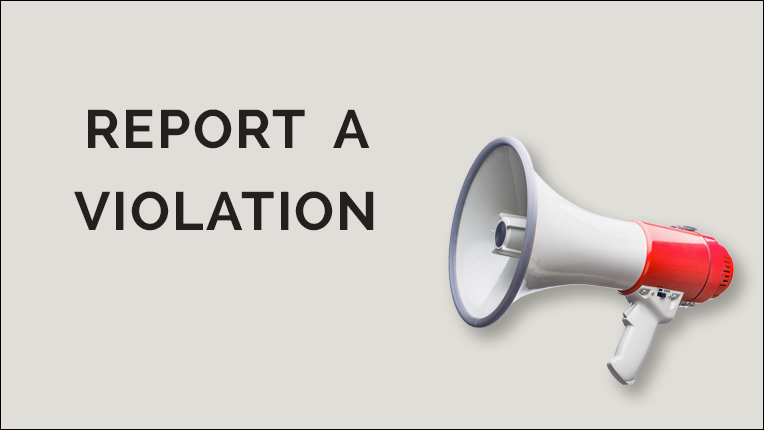Policy on Coercion and Abuse in the ACM Publications Process
Approved by the ACM Publications Board, May 24, 2019
Introduction
ACM is a major publisher of scholarly and technological materials. The stated intent of the publications process of ACM is that no one should use it as a vehicle for coercion or abuse, and that everyone (including authors, collaborators, reviewers, editors) behave consistently with ACM principles. Specifically, this policy includes by reference the ACM Code of Ethics and Professional Conduct, specifically principles 1.2, "Avoid Harm"; 1.3, "Be honest and trustworthy"; 1.4, "Be fair and take action not to discriminate”; 1.5, "Respect the work required to produce new ideas, inventions, creative works, and computing artifacts"; 2.2, "Maintain high standards of professional competence, conduct, and ethical practice"; 2.3, "Know and respect existing rules pertaining to professional work"; and 2.4, “Accept and provide appropriate professional review."
ACM expects that the submission, review, and publication process be carried out with the highest ethical standards. Authors listed on a manuscript should have made a clearly identifiable contribution to the work (see https://www.acm.org/publications/policies/authorship), with author order decided upon in a fair and justifiable manner. Reviewers should complete their review promptly and judge the manuscript (and not the authors) solely on its merits without regard to work in which the reviewer is engaged. Editors should ensure that the reviews provided are justified and are written in a way that advances the profession without demeaning the authors.
Coercion and abuse in this context include any attempt related to an ACM publication, through the use of one’s position, perceived position, influence, or role either to (a) intimidate, demean, or harm another, or to (b) take any action that unjustly or inappropriately disadvantages another or provides an advantage to oneself or another. These behaviors are sometimes referred to as bullying.
Examples include:
- An editor or reviewer forcing an author to reference one’s works even if relevant to the original submission
- An editor or reviewer forcing an author to reference any work that is not relevant to the original submission
- A senior author intimidating other authors to add or delete additional authors inappropriately
- A professor forcing a student to falsify results in a published paper
- A reviewer recommending rejection of a submission unless the author does something in return for the reviewer
- A reviewer disparaging the authors of a submission rather than commenting on the contents of the paper itself. This includes, but is not limited to, use of demeaning language, insults, or threats in reviews
- An author falsely and knowingly accusing an editor of discriminatory practices
The above is not an exhaustive list.
Coercion and abuse often occur in situations where someone can exploit a power differential with another person, and the perpetrator will depend on that differential to keep the coercive or abusive acts from being reported. Victims should understand that those who engage in coercion or abuse may be repeat offenders and reporting them – although possibly daunting – is a service to the community of scholars the ACM serves.
ACM Publications staff and volunteers will investigate reports of coercion and abuse, then seek to remediate any untoward consequences of those actions. Any retaliatory acts resulting from reports of violations are themselves serious breaches of this policy and will be handled accordingly.
Coercion and abuse are inappropriate and unethical, and may be criminal in some cases. Most instances of coercion and abuse are covered under existing policies, such as the Conflict of Interest Policy, the Policy Against Harassment at ACM Activities, and the Policy on Plagiarism, Misrepresentation, and Falsification. As such, the reporting procedures and mechanisms detailed in those policies should be followed, if applicable. Any other instances will be considered violations of professional publishing ethics and will be reported for investigation and action.
Instances of bullying should be reported to the ACM Publications Committee on Ethics and Plagiarism via the ACM Director of Publications. It is important that evidence is included in the report, when available. Reports will be investigated, with due process considerations given to both the complainant and the respondent. Penalties may include a letter of reprimand or censure to the respondent with a copy sent to the respondent’s supervisor, and/or restrictions on the respondent’s ability to participate in ACM Publications as an author, reviewer, and/or editor. In the case of illegal behavior, ACM Publications may refer the matter to an appropriate law enforcement agency.
Provably false accusations and acts of retribution will also be treated as serious offenses that will be reported to the ACM Committee on Professional Ethics for evaluation and similar action.
Questions and Reporting Violations
Contact the ACM Director of Publications for any
- Questions about the interpretation of this policy
- Complaints of coercion and abuse to be investigated
Please use the online form to report incidents related to Policy on Coercion and Abuse in the ACM Publications Process.
Report a Potential Violation
If you believe one or more of ACM’s Publications Policies have been violated and you have credible evidence of such violation(s), you may report a potential violation as a claimant. Before you report a potential violation, please read ACM’s Publications Policies carefully.
